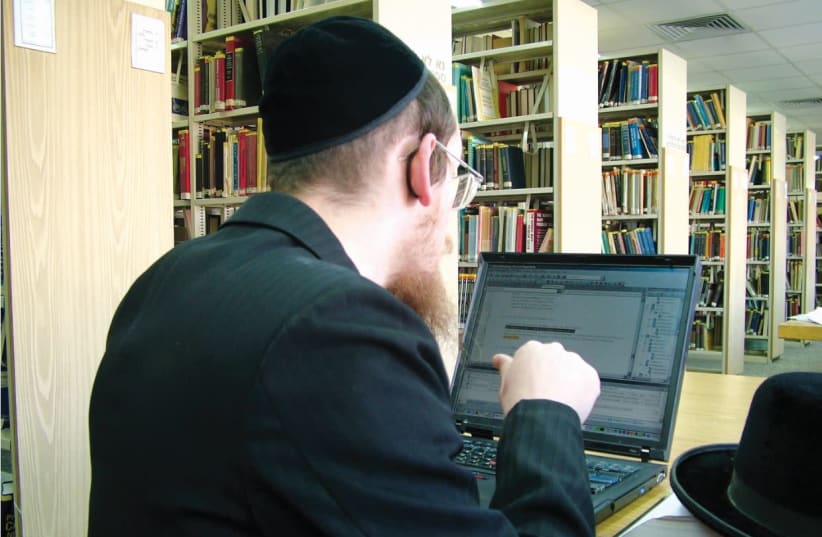The “Z-Skills: From Academia to Employment” course will help third- and fourth-year undergraduate computer science students at JCT gain the knowledge and skills needed to enter the job market. The course will cover workforce trends, creative thinking, innovation and entrepreneurship and will help students prepare for interviews and career development.
Graduates of the course will be able to support the Israeli labor market amid the continuing coronavirus crisis and will help improve employment opportunities for haredim and women. At JCT, haredi graduates have an 89% employment rate, while the general employment rate for haredi men around Israel is about 50%. Additionally, 53% of JCT's computer science students are women, 18% higher than any other Israeli academic institution.
“Young haredi men and women who are looking to build a Torah-based home and make a living turn to JCT in order to study computers, engineering, and other technology disciplines,” said JCT President Prof. Chaim Sukenik. “We are working to assist these future industrial leaders by positioning them to secure prestigious jobs in the high-tech world, the defense establishment, and cybersecurity. We could not do this without empowering our students with the tools they need to be successful in the workforce."
Sukenik thanked the Yedidut Toronto Foundation for investing in the JCT course.
“In light of rising unemployment, we need to respond to the COVID-19 crisis by helping young people get ready for a dynamic and innovative employment market,” said Natan Kandler, CEO of Career 21. “The integration of haredim in the Israeli high-tech sector is a national mission that can dramatically change the economic and social fabric of Israel, while helping the high-tech sector’s growth become more diverse and equitable."
The course is one of multiple projects conducted with Canadian collaboration. JCT has also partnered in the past with the University of Toronto to establish Israel's first academic program in health informatics with the goal of improving the quality of patient care in Israel through data analysis.
